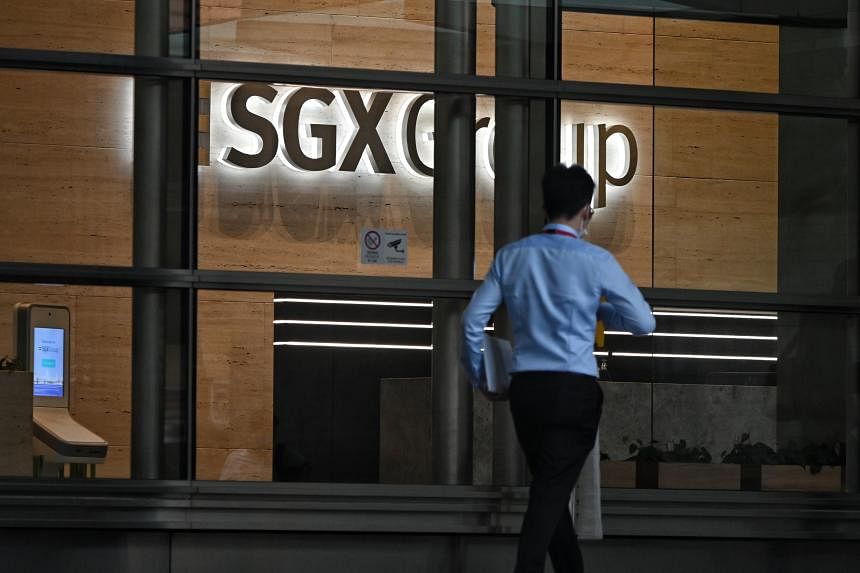SINGAPORE – Investors have long been keen on exchange-traded funds (ETFs) but the sector is undergoing a shake-up, with the first active ETF set to hit the market here on Jan 31.
ETFs usually track an index or asset such as a stock market, and are passive, in that they are not actively managed by an investment manager.
The Lion-Nomura Japan Active ETF (Powered by AI) – the first active fund to list on the Singapore Exchange (SGX) – is quite different; it is built based on the manager’s investment expertise, rather than passively tracking an underlying index.
The fund, a collaboration between Lion Global Investors and Nomura Asset Management group, is also the first here to be managed by artificial intelligence (AI).
It offers investors exposure to an actively managed portfolio of between 50 and 100 listed Japanese companies with the potential for long-term capital growth.
These companies will be identified via Lion Global Investors’ and Nomura Asset Management’s proprietary AI models. AI can evaluate hundreds of factors, including a firm’s financial results, in selecting these securities. These AI models will be refreshed monthly, enabling them to respond to trends dynamically.
Ms Janice Kan, SGX’s co-head of equities, noted in a statement on Jan 12 to mark the launch: “By leveraging AI, this active ETF adopts a dynamic approach, enabling the investment managers to respond to market changes through more frequent portfolio rebalancing.”
It also showcases SGX’s product innovation and diversity, given that retail investors have showed a greater appetite for ETF investing since 2019, she added.
Lion Global Investors chief executive Teo Joo Wah said the ETF’s launch combines the clients’ desire for cost-effective solutions with more efficient portfolio management.
Assets under management or AUM of ETFs here doubled to over $10 billion between December 2019 and October 2023, according to SGX data.
Active ETFs have been gaining in popularity overseas. They had a total fund size of US$659 billion (S$877 billion) globally as at June 2023, based on Bloomberg data. The AUM of active ETFs in Asia Pacific recorded a five-year annualised growth of 27 per cent, riding on the rapid expansion of fund adoption in the region.
Nomura Asset Management Singapore managing director and CEO Takahiro Kawabe noted that the firm recently launched two active ETFs in Japan.
Using AI
A notable feature of the Lion-Nomura Japan Active ETF will be its use of AI.
Mr Geoff Howie, SGX’s equities market strategist, noted that AI is becoming more popular in the financial sector, especially in Singapore and Japan. For example, AI-related stocks were the main reason the S&P 500 index on Wall Street recouped its 2022 losses in 2023.
“AI can automate and augment tasks such as data collection, analysis, natural language processing, sentiment analysis, anomaly detection and risk assessment,” he added.
Ms Ong Ai Ling, Lion Global Investors’ portfolio manager and head of its Artificial Intelligence of Investments team, said that by using AI to make the stock selection, “you avoid the human bias and emotions in the decision-making process, hence ensuring that you have a disciplined approach towards investing”.
The Japan theme
The theme of Japan is likely to resonate with investors, the various players added.
Lion Global’s Mr Teo said that corporate governance reforms and strong foreign investor interest are expected to continue to drive the Japanese stock market.
These corporate governance reforms include restructuring changes announced by the Tokyo Stock Exchange in 2022, said Lion Global Investors’ Ms Ong.
The exchange restructured its market segments into prime, standard and growth segments. To stay in the prime segment, companies that are trading at below one times price to book (price per share must be equal to book value per share) must comply or explain why they are trading at below book value.
To avoid being downgraded, companies will undertake share buybacks or issue dividends to raise their stock price. Other companies have started unwinding their cross shareholdings as well as redeploying capital in an effort to improve their return on equity, added Ms Ong.
Japan is also experiencing inflation, which is a positive after many years of deflation. A moderate level of inflation means corporate profit margins can start to improve, and this in turn will improve corporate valuations.
Investor safeguards and how to apply for the ETF
SGX issued a practice note in December 2023 focusing on investor safeguards. These include fund managers having to publish indicative net asset values throughout the trading day, disclose net asset value daily and publish fund performance and portfolio holdings on a monthly basis.
The initial offering period (IOP) of the Lion-Nomura Japan Active ETF is from Jan 5 to 25, with listing starting on Jan 31.
The ETF is available in both Singapore and US dollar denominations under the SGX code JJJ and JUS respectively. The issue price of each unit during the IOP is $1.
Investors can subscribe to the ETF through OCBC ATMs, Internet banking or mobile banking during the IOP period.
Participating dealers include iFast Financial, Moomoo Financial Singapore, OCBC Securities, Phillip Securities and Tiger Brokers (Singapore).


